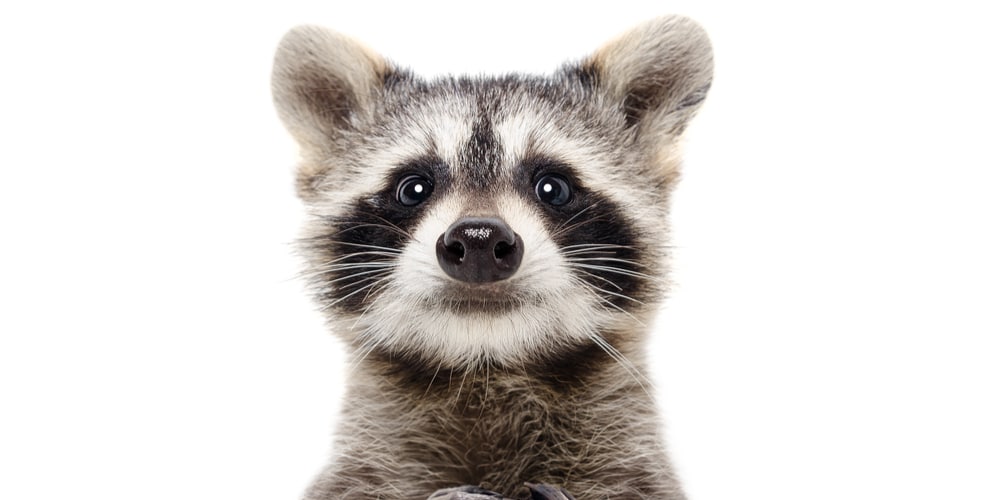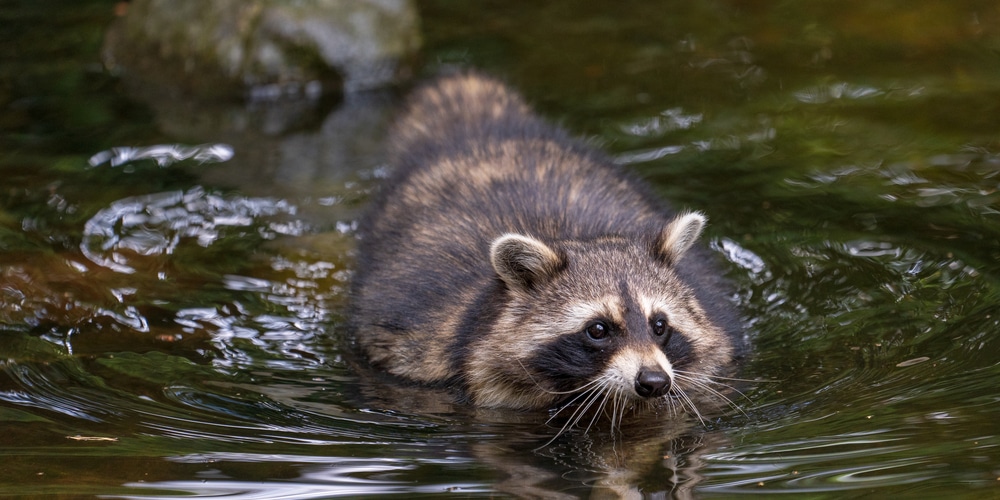Have you spotted a raccoon lurking around your property lately and are worried that it might take a dip in your swimming pool? Perhaps the first question you’d ask is, ‘can racoons swim?’ Another thing is, why do they swim, and how can you stop raccoons from diving uninvited to your pool?
Can Racoons Swim?

The short answer is that yes, raccoons can swim albeit slowly. They’re not the best swimmers around, mainly because raccoons aren’t built for wading and splashing about, but they’ve been known to take a dip as needed (more on this later).
Raccoons are rather furry and a bit heavy, and they would rather climb and scamper about rather than swim. Raccoons are highly intelligent though, and if they can’t find food or are feeling the summer heat then it’s not uncommon to find them wading in the water.
Raccoons swim better in springtime as they’ve lost a significant amount of weight. You’d be surprised to find that these creatures can dive down to a meter and a half underwater and hold their breaths for several minutes at a time.
Why Do Racoons Swim?
A racoon’s habitat is such that they prefer to live close to a source of water, which might include your swimming pool.
Raccoons like hanging around water- in the wild, they usually get their meals by fishing with their paws. Other than that, raccoons ‘wash’ their hands and food frequently as a sort of ritual. The reason behind this is simple- their paws are important to them, and racoons wash them to keep them keen and sensitive to stimuli.
Another thing that annoys pool owners is the fact that racoons defecate on bodies of water. These animals prefer to poop near a water source, which in this case could be the shallow steps of your swimming pool.
This habit can be costly concerning pool maintenance, and swimmers can ingest significant amounts of roundworms called Baylisascaris procyonis, which is a parasite found in raccoon poop.
How to Stop Raccoons From Swimming in Your Pool
Here are four methods you can employ to keep raccoons out of your swimming pool.
Seal Possible Entry Points
The first thing you should do is to try and keep raccoons from entering your property by eliminating possible entry points.
These include open fence doors, holes in wall structures, and low-hanging branches in your garden. You can seal, cover or mend unwanted entry points depending on the material and what you have on hand. Cover or shut them in to prevent small animals such as raccoons from coming through.
Keep Your Outdoor Space Neat
Hygiene plays an important role in keeping off raccoons in your yard and swimming pool. Generally speaking, you shouldn’t give them a reason to hang around or turn your home into a den.
Aside from storing pet food and birdseed indoors, it’s best to keep your yard or garden as free from debris as possible. If you grow vegetables then it’s recommended that you follow the harvest date to the letter and get them out before the raccoons could snack on them.
Raccoons are likely to move on to the next area if they don’t see your yard or pool as sustainable.
Cover Your Pool
Stopping raccoons from swimming in your pool can be as simple as not allowing them in physically. To this end, you can invest in a pool cover so they won’t be able to enter.
It can be as simple as a tarp cover for small to medium-sized pools, or you can opt for more modern solutions such as motorized covers that work like garage doors. You can put the cover on if the weather is too cold to swim or if you don’t intend to use the pool for a while.
Practice Effective Trash Maintenance
Raccoons prefer to scrounge about in people’s trash cans in search of easy food. You can practice clean waste management and discourage them from searching through your bins to get a tasty treat.
Invest in heavy-duty trash cans with lids and if possible, only set out the containers when trash collection day comes. Furthermore, it’s recommended that you keep trash cans and debris well away from the pool area.
Related Article: Do Racoons Climb Trees?
